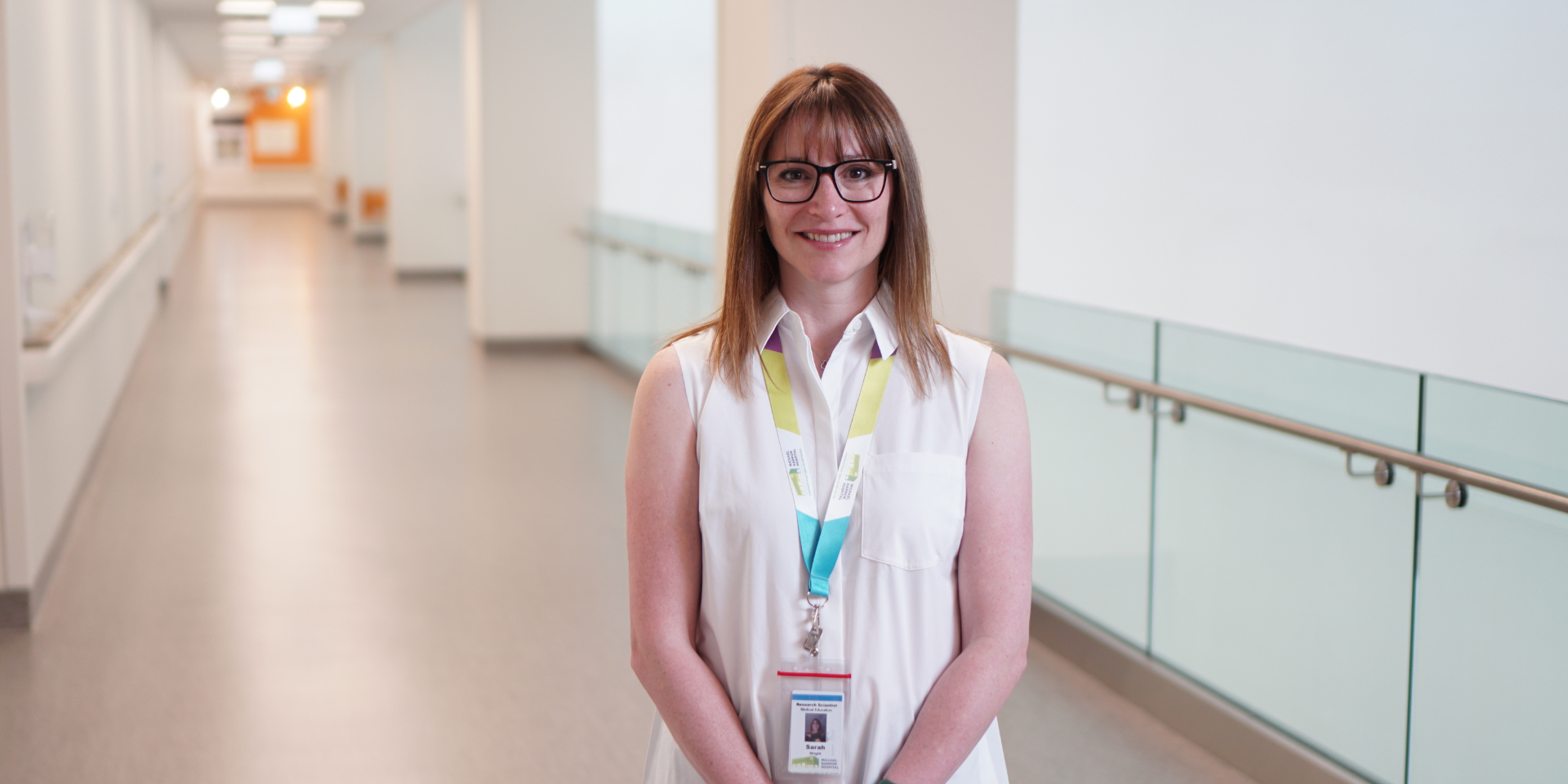#IamMGHresearch tells the stories of our researchers. Meet Sarah Wright, Research Scientist at Michael Garron Hospital (MGH).
“I am originally from upstate New York. After I finished high school, I pursued a degree in psychology at a liberal arts college and then completed my Master of Business Administration (MBA). I loved the academic environment and being able to ask questions and learn and knew I would enjoy working in a university. So, when my personal life brought me to the United Kingdom, I accepted a job with Newcastle University’s School of Medical Education as a psychometrician.
Psychometrics is a subsect of psychology that deals with measurement and assessment. A large part my role with the School of Medical Education focused on how we assess medical students during the admissions process and during their undergraduate training. I would often review examination scores, looking at how an Objective Structured Clinical Examination (OSCE) station or an individual question performed using psychometric techniques. I would also help identify the appropriate “pass” mark for an examination based on the psychometric theory.
During this time, I completed my PhD which focused on fairness in medical student admissions policy and practices. After a few years of being in the U.K., I had another change in my personal life which brought me back to North America. In 2014, I made the move to MGH as a Research Scientist.
Within my role at MGH, I have two main responsibilities. The first is to develop my own independent research program. The second is to develop research capacity among students and clinicians who are interested in participating in research and scholarship both at the hospital and in the Department of Family and Community Medicine at the University of Toronto (U of T) where I have a faculty appointment in the Office of Education Scholarship.
My own research program takes a critical lens to admissions and assessment practices and policies in health professions education. For example, one of my recent projects examined the experiences of medical students who were the first in their families to go to university to understand how medical schools and hospitals can embrace the diversity that these individuals bring to the medical community. This research also helped us identify practices that can come as a disadvantage to certain groups of students in the hopes that we can create a more equitable system for all.
One of the projects I’m currently working on with Drs. Michelle Lockyer and Peter Tzakas is looking at learner mistreatment during medical training. We are hoping to better understand what those experiences are, their impact on the learners and how we can change things to minimize experiences of mistreatment. We need systems in place that will support students not only learning about the biomedical aspects of healthcare, but also the humanist and caring side of it too!
As a scientist, I would say the main challenge of my role is figuring out what to say no to since there are so many exciting projects and initiatives that I want to be involved in. On the opposite end of the spectrum, one of the main highlights is the diversity of people I get to work with and different perspectives I get to hear that can often challenge my own thinking.
If there is anyone out there reading this who is interested in perusing a similar career, what I would say is that a lot of us in health professions education feel like we landed here by accident. However, there are so many more health professions education-specific programs available now that prepare individuals for this kind of work. Be intentional with the programs you are choosing and make sure you’re passionate about what you do.”
